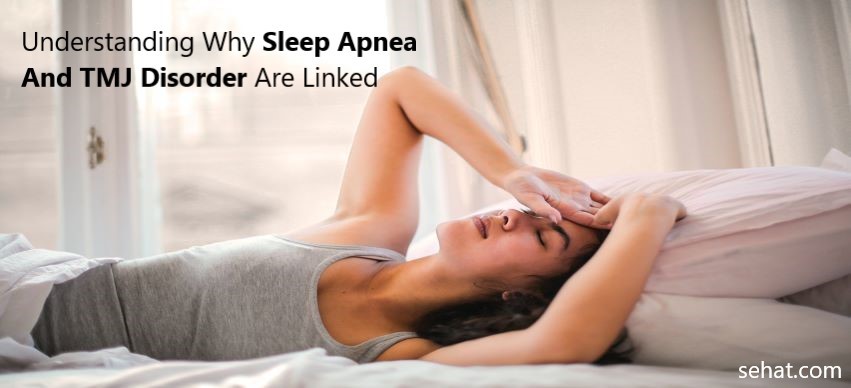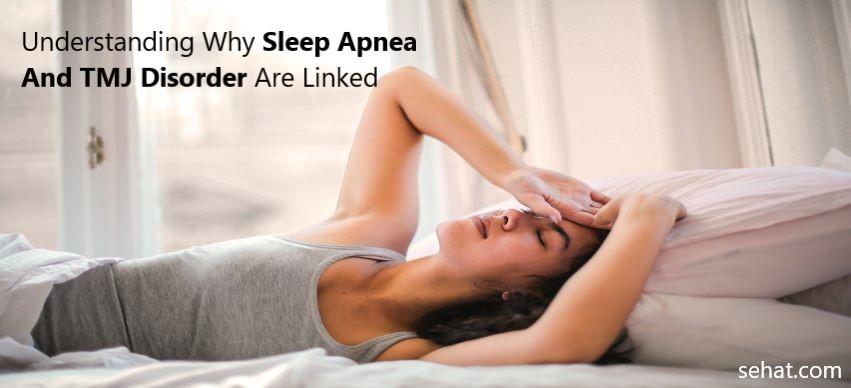How Communities Are Changing the Way We Think About Aging in..
8 Min Read


TMJ and sleep apnea are two separate diagnoses, but they often exist simultaneously. People can have one without the other, but unfortunately, people with TMJ often have other problems, like sleep apnea.
Recognizing the TMJ and sleep apnea connection can help sufferers better understand their treatment options.
TMJ is the abbreviation for the temporomandibular joint that connects the jaw to the skull, and TMD is the abbreviation for the dysfunction in that joint. The hinge joint can slide thanks to a small shock-absorbing disk and cartilage. If the disk or cartilage are damaged, the joint no longer moves smoothly, resulting in pain and discomfort.
Symptoms of TMD include several painful problems that include;
Some people with TMD find that the problem goes away. Unfortunately, for others, the problem can be chronic. The pain and discomfort do not go away. Treatment options include bite splints, anti-inflammatory medications, or surgery that repairs the soft tissue in the joint. Less-common solutions include massage, steroid or Botox injections, or stress counseling.
Sleep apnea is a sleep disorder that causes people to stop breathing while they are asleep. Treatment options include nightly CPAP machines, oral appliances, or surgery.
People with obstructive sleep apnea stop breathing many times throughout the night because of airway blockages. When people begin breathing again, they often gasp or have a sudden, jerky movement.
This form of sleep apnea comes from the central nervous system failing to signal to the body that it needs to breathe. The airways are open in central sleep apnea.
Healthcare providers also refer to this type of sleep apnea as treatment-emergent central sleep apnea because it involves obstructive and central sleep apnea. Often, it begins when people with central sleep apnea develop the obstructive version after using CPAP machines.
The jaw’s position impacts the opening of the airways, which encouraged researchers to look into the TMJ sleep apnea connection.
People with TMJ also have difficulty sleeping, and the root of the problem involves characteristics similar to sleep apnea. Because of the discomfort in the temporomandibular joint, sleeping people often jut their jaws forward, which is what people with sleep apnea do to open their airways.
As people with TMJ problems move their jaws through the night, they can accidentally force their airways closed, thus stopping the body from breathing. Because people with TMJ often sleep poorly due to the pain in the jaw joint, they tend to suffer from chronic fatigue syndrome, which can eventually turn into sleep apnea.
Unfortunately, people who suffer from TMJ often keep the problem to themselves. They think their jaw pain is due to aging, and healthcare providers cannot help them. However, Dentists and healthcare providers can diagnose and treat TMJ to reduce pain and improve their patients' quality of life.
Dentists can look at mouth structures to determine if sufferers grind their teeth, have an issue with the tongue, or have a narrow soft palate. These signs can also tell a healthcare provider that a person could have sleep apnea.
TMJ can be treated, and it can go away on its own. But, sleep apnea cannot. Leaving sleep apnea untreated can result in serious health complications. Sleep apnea can increase the risk of heart attacks, strokes, and diabetes.
Health risks develop from sleep apnea because of extreme daytime fatigue. People with sleep apnea are more likely to have car accidents or workplace accidents. They also have psychological and emotional problems from being tired. Sleep apnea can lead to high blood pressure and heart problems because of lower blood oxygen levels.
Sleep apnea can also create sleeping problems for partners. They wake when the sleep apnea causes their partners to jerk awake or gasp for breath.
TMJ also affects sleep, even with a sleep apnea diagnosis. Research shows that more than 50% of patients with TMD sleep poorly because of the pain near their ears. Being tired from TMJ discomfort can create memory problems and irritability. Because of the added stress of being tired, people with TMJ exacerbate the problem by grinding their teeth and jutting their jaws.
To avoid having TMJ disorders cause sleep apnea, people with one or the other disorder should seek treatment. Their healthcare providers can share relaxation exercises to soothe TMJ discomfort. They can prescribe CPAP machines and oral devices to reduce the chances that patients will continue to jut their jaws and exacerbate both conditions.